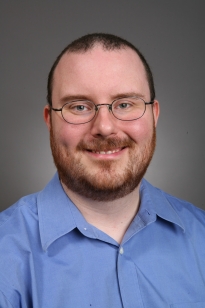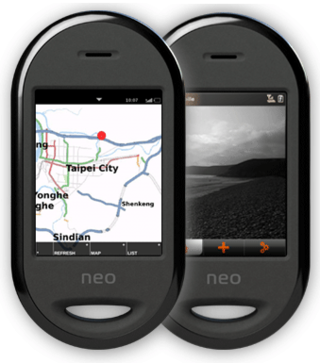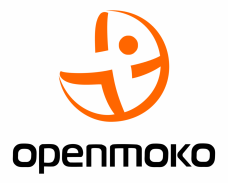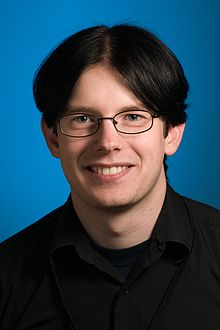
Free software or libre software or libreware is computer software distributed under terms that allow users to run the software for any purpose as well as to study, change, and distribute it and any adapted versions. Free software is a matter of liberty, not price; all users are legally free to do what they want with their copies of a free software regardless of how much is paid to obtain the program. Computer programs are deemed "free" if they give end-users ultimate control over the software and, subsequently, over their devices.

GNU is an extensive collection of free software, which can be used as an operating system or can be used in parts with other operating systems. The use of the completed GNU tools led to the family of operating systems popularly known as Linux. Most of GNU is licensed under the GNU Project's own General Public License (GPL).

Free Software Foundation (FSF) grants two annual awards. Since 1998, FSF has granted the award for Advancement of Free Software and since 2005, also the Free Software Award for Projects of Social Benefit.
iptables is a user-space utility program that allows a system administrator to configure the IP packet filter rules of the Linux kernel firewall, implemented as different Netfilter modules. The filters are organized in different tables, which contain chains of rules for how to treat network traffic packets. Different kernel modules and programs are currently used for different protocols; iptables applies to IPv4, ip6tables to IPv6, arptables to ARP, and ebtables to Ethernet frames.
Netfilter is a framework provided by the Linux kernel that allows various networking-related operations to be implemented in the form of customized handlers. Netfilter offers various functions and operations for packet filtering, network address translation, and port translation, which provide the functionality required for directing packets through a network and prohibiting packets from reaching sensitive locations within a network.
The Common Development and Distribution License (CDDL) is a free and open-source software license, produced by Sun Microsystems, based on the Mozilla Public License (MPL). Files licensed under the CDDL can be combined with files licensed under other licenses, whether open source or proprietary. In 2005 the Open Source Initiative approved the license. The Free Software Foundation (FSF) considers it a free software license, but one which is incompatible with the GNU General Public License (GPL).

Bradley M. Kuhn is a free software activist from the United States.

Linux-based devices or Linux devices are computer appliances that are powered by the Linux kernel and possibly parts of the GNU operating system. Device manufacturers' reasons to use Linux may be various: low cost, security, stability, scalability or customizability. Many original equipment manufacturers use free and open source software to brand their products. Community maintained Linux devices are also available.

gpl-violations.org is a not-for-profit project founded and led by Harald Welte in 2004. It works to make sure software licensed under the GNU General Public License (GPL) is not used in ways prohibited by the license.
Tivoization is the practice of designing hardware that incorporates software under the terms of a copyleft software license like the GNU General Public License, but uses hardware restrictions or digital rights management (DRM) to prevent users from running modified versions of the software on that hardware. Richard Stallman of the Free Software Foundation (FSF) coined the term in reference to TiVo's use of GNU GPL licensed software on the TiVo brand digital video recorders (DVR), which actively block modified software by design. Stallman believes this practice denies users some of the freedom that the GNU GPL was designed to protect. The FSF refers to tivoized hardware as "proprietary tyrants".
This comparison only covers software licenses which have a linked Wikipedia article for details and which are approved by at least one of the following expert groups: the Free Software Foundation, the Open Source Initiative, the Debian Project and the Fedora Project. For a list of licenses not specifically intended for software, see List of free-content licences.

Openmoko is a discontinued project to create a family of open source mobile phones, including the hardware specification, the operating system, and actual smartphone development implementation like the Neo 1973 and Neo FreeRunner. The whole project was sponsored by Openmoko Inc.
License compatibility is a legal framework that allows for pieces of software with different software licenses to be distributed together. The need for such a framework arises because the different licenses can contain contradictory requirements, rendering it impossible to legally combine source code from separately-licensed software in order to create and publish a new program. Proprietary licenses are generally program-specific and incompatible; authors must negotiate to combine code. Copyleft licenses are commonly deliberately incompatible with proprietary licenses, in order to prevent copyleft software from being re-licensed under a proprietary license, turning it into proprietary software. Many copyleft licenses explicitly allow relicensing under some other copyleft licenses. Permissive licenses are compatible with everything, including proprietary licenses; there is thus no guarantee that all derived works will remain under a permissive license.

Openmoko Linux is an operating system for smartphones developed by the Openmoko project. It is based on the Ångström distribution, comprising various pieces of free software.

OpenEZX was a project active from 2004 to 2008, which gathered information about the Linux based Motorola EZX phone platform.
The GNU General Public License is a series of widely used free software licenses that guarantee end users the four freedoms to run, study, share, and modify the software. The license was the first copyleft for general use and was originally written by the founder of the Free Software Foundation (FSF), Richard, for the GNU Project. The license grants the recipients of a computer program the rights of the Free Software Definition. These GPL series are all copyleft licenses, which means that any derivative work must be distributed under the same or equivalent license terms. It is more restrictive than the Lesser General Public License and even further distinct from the more widely used permissive software licenses BSD, MIT, and Apache.
The Free Software Foundation (FSF) is a 501(c)(3) non-profit organization founded by Richard Stallman on October 4, 1985, to support the free software movement, with the organization's preference for software being distributed under copyleft terms, such as with its own GNU General Public License. The FSF was incorporated in Boston, Massachusetts, US, where it is also based.
nftables is a subsystem of the Linux kernel providing filtering and classification of network packets/datagrams/frames. It has been available since Linux kernel 3.13 released on 19 January 2014.
Open source license litigation involves lawsuits surrounding open-source licensed software. Many of the legal rights of open source software licensors enforceable against users violating licensing agreements are untested by the U.S. legal system. Free and open source software (FOSS) is distributed under a variety of free-software licenses, which are unique among other software licenses. Legal action against open source licenses involves questions about their validity and enforceability.
Osmocom is an open-source software project that implements multiple mobile communication standards, including GSM, DECT, TETRA and others.









